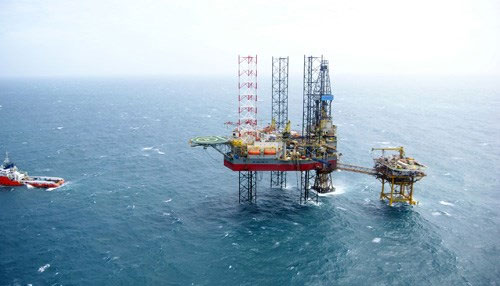PetroVietnam feels concerned for impending FTAs

illustration photo
PetroVietnam recently estimated consumption at the Binh Son Refining and Petrochemical Limited (BSR) which manages Dung Quat oil refinery taking into account the country’s raft of free trade agreements and other international commitments likely to take effect during the 2015-2018 period.
According to PetroVietnam, the import tariff applied to BSR in setting the company’s tax rate as regulated in prime ministerial Decision 1942 is set based on current import preferential tariffs.
The Ministry of Finance, however, late last year enacted five circulars presenting special import preferential tariffs Vietnam needs to follow in order to meet its free trade agreements commitments during 2015-2018, such as Circular 165/2014/TT-BTC on the implementation of the FTA with the ASEAN.
PetroVietnam argued that the tariff rates enclosed to Circular 165 applied to imported petroleum products from ASEAN countries were set significantly lower than those set in current preferential import tariffs.
For example, in the tariff enclosed to Circular 165, petrol incurs 20 per cent import duty during 2015-2018 and diesel oil for engines subject to 5 per cent import duty in 2015, falling to zero per cent during 2016-2018.
Meanwhile, in the current preferential import tariff that the BSR currently applies, petrol is subject to 35 per cent import rate, diesel oil 30 per cent, liquefied petroleum gas (LPG) 5 per cent and PP resin 2 per cent.
“This means that BSR products would struggle to compete in the domestic market when other state-controlled petroleum import enterprises could import products of ASEAN origin with much lower import duties,” PetroVietnam claimed in a recent statement.
If BSR applies the lower import rates enclosed to Circular 165, PetroVietnam claimed it could leave a hole in Dung Quat oil refinery’s tax payment during the period.
The state-owned oil giant claimed this would leave a VND14.3 trillion ($668 million) tax hole this year, increasing to VND16.2 trillion ($759 million) annually during 2016-2018.
Once these lower rates were applied, PetroVietnam claimed it would need to subsidise part of the rates for BSR as regulated in Decision 1942.
PetroVietnam estimated that if the oil price stood at $60 per barrel, its payment would be VND1.06 trillion ($49.7 million) this year, increasing to VND3 trillion ($140 million) each year during 2016-2018 as subsidy for BSR.
“This could seriously affect the capital balance of PetroVietnam when handing operations during the period,” said Ninh Van Quynh, PetroVietnam’s deputy general director.
What the stars mean:
★ Poor ★ ★ Promising ★★★ Good ★★★★ Very good ★★★★★ Exceptional
Latest News
More News
- NAB Innovation Centre underscores Vietnam’s appeal for tech investment (January 30, 2026 | 11:16)
- Vietnam moves towards market-based fuel management with E10 rollout (January 30, 2026 | 11:10)
- Vietnam startup funding enters a period of capital reset (January 30, 2026 | 11:06)
- Vietnam strengthens public debt management with World Bank and IMF (January 30, 2026 | 11:00)
- PM inspects APEC 2027 project progress in An Giang province (January 29, 2026 | 09:00)
- Vietnam among the world’s top 15 trading nations (January 28, 2026 | 17:12)
- Vietnam accelerates preparations for arbitration centre linked to new financial hub (January 28, 2026 | 17:09)
- Vietnam's IPO market on recovery trajectory (January 28, 2026 | 17:04)
- Digital economy takes centre stage in Vietnam’s new growth model (January 28, 2026 | 11:43)
- EU Council president to visit Vietnam amid partnership upgrade (January 28, 2026 | 11:00)
















 Mobile Version
Mobile Version